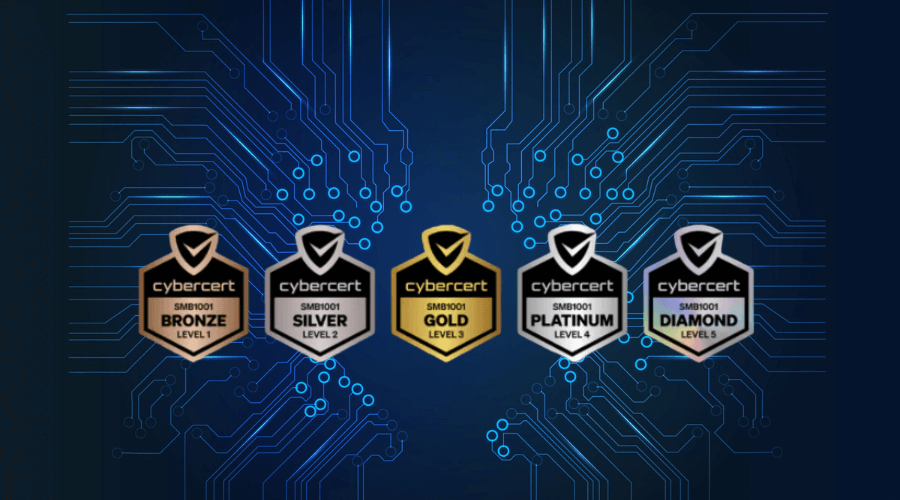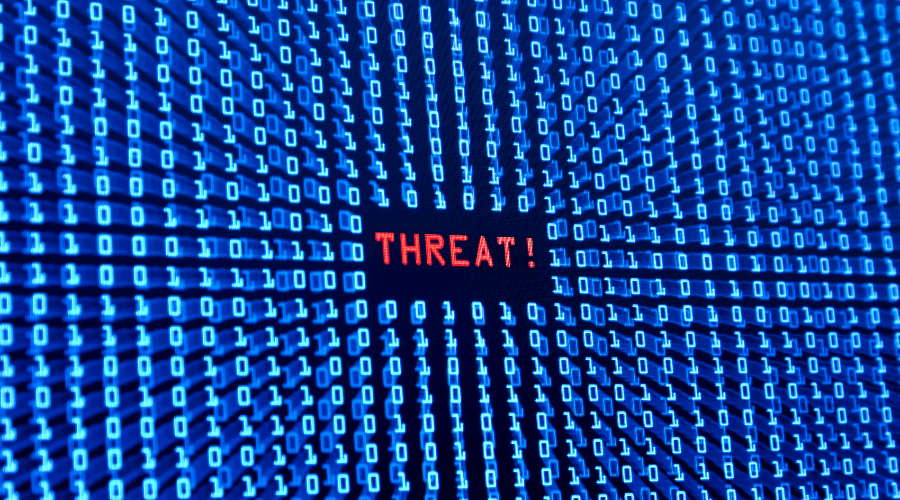In 2020, the Australian Small Business and Family Enterprise Ombudsman reported that small businesses account for between 97.4% and 98.4% of all businesses across our shores. Of this majority portion, the Australian Signals Directorate’s (ASD) Annual Report 2023-24 reveals that the average cost of cybercrime for small businesses surged to over $46,000 in 2022-2023. With a significant portion of the economy reliant on small businesses, shielding them from disruption is crucial to building a cyber-resilient Australia.
One such certification gaining traction among Australia’s small-to-medium-sized businesses (SMB) is SMB1001, a framework designed specifically for their sector. It provides the necessary guidelines to protect digital assets and enhance overall cybersecurity for SMBs, particularly in securing supply chains. In this blog, we will explore why the SMB1001 certification is here to support and secure Australia’s smaller businesses so that they can trade with their supply chains and grow safely.
What is SMB1001 Certification?
SMB1001 Certification is a cybersecurity framework for SMBs that offers a structured, tiered approach to improving key areas of interest like data protection, risk management, and incident response. This certification helps businesses enhance their security posture while remaining cost-effective and manageable for smaller operations.
With more businesses moving to digital platforms and cloud-based systems, SMB1001 certification is becoming increasingly important for businesses that want to secure digital assets and maintain trust with their stakeholders. Achieving SMB1001 certification demonstrates a company’s commitment to cybersecurity and ability to manage risks effectively.
The Importance of Supply Chain Security
In November 2023, a cyberattack on major Australian ports, including Sydney, Melbourne, Brisbane, and Fremantle, disrupted national supply chains and put Australian maritime security in peril, leaving the nation’s critical infrastructure in the ocean without a paddle.
The growing frequency of cyberattacks on our shores, data breaches, and other security threats underscores the importance of tightening the nation’s cyber borders and securing our entire network of partners, vendors, and third-party providers for all businesses. A breach in one part of the supply chain can have cascading effects, compromising business operations and damaging relationships with clients and stakeholders.
Beyond the immediate business impact, cybersecurity risks in the supply chain can also affect compliance with data protection regulations. By prioritising supply chain security, businesses can meet these compliance requirements and avoid potential legal or financial penalties.
How Does SMB1001 Certification Improve Supply Chain Security?
SMB1001 Certification improves supply chain security by implementing key cybersecurity practices such as data encryption, access controls, and incident response planning. It helps businesses safeguard sensitive information, mitigate cyber risks, foster growth and scalability, and ensure compliance with security standards, ultimately protecting the supply chain’s and partners’ integrity.
One key area SMB1001 focuses on is risk management. The certification encourages businesses to identify, assess, and manage risks across their supply chain, proactively addressing all potential vulnerabilities. This includes evaluating third-party vendors and partners, ensuring they adhere to the same cybersecurity standards, and implementing effective data protection measures to safeguard sensitive business information.
By aligning with SMB1001 certification, businesses can ensure their cybersecurity practices meet industry standards and are continuously updated to stay ahead of emerging threats. The certification also fosters transparency and trust with customers and suppliers, ensuring that all parties involved are confident in the security of the supply chain.
Steps to Achieve SMB1001 Certification
Achieving SMB1001 certification is a systematic process that requires businesses to implement specific cybersecurity practices and demonstrate compliance with the outlined standards. Here’s a general roadmap for achieving SMB1001 certification:
- Evaluate Current Cybersecurity Practices: Begin by assessing your current cybersecurity practices, including data protection measures, risk management protocols, and compliance with regulatory standards.
- Identify Areas for Improvement: Based on the evaluation, identify gaps in your security practices and address these areas to meet the SMB1001 standards.
- Implement Cybersecurity Measures: Introduce necessary cybersecurity measures, such as enhanced data encryption, secure communication channels, and robust access controls.
- Engage Third-Party Vendors: Ensure that any third-party vendors in your supply chain meet SMB1001 standards to ensure consistency in cybersecurity practices.
- Conduct Regular Audits and Reviews: Regularly audit your cybersecurity practices and make necessary adjustments to comply with evolving threats and regulatory requirements.
- Submit for Certification: Once all required standards are met, submit for SMB1001 certification through an accredited certifying body.
Case Studies: Successful Implementation of SMB1001
In late November 2023, a sophisticated cyberattack targeted major Australian ports, including Sydney, Melbourne, Brisbane, and Fremantle, leading to significant disruptions in national supply chains, according to The Straits Times. The attack crippled critical port infrastructure, leaving loaded cargo ships stranded.
In response to such escalating threats, Ports Australia has advocated for enhanced cybersecurity measures just this year, emphasising the necessity of collaborative efforts between government entities and industry stakeholders. They propose the establishment of a consultative forum to bolster national supply chain defences against cyber threats.
Implementing the SMB1001 standard is a proactive approach for SMBs to address these challenges. Through SMB1001, using this case, Ports Australia can conduct thorough risk assessments, install robust data protection measures, develop incident response plans, and train employees in cybersecurity best practices. Integrating frameworks like SMB1001 bolsters national supply chain defences.
Conclusion
SMB1001 certification is invaluable for small businesses aiming to improve their supply chain security. By adhering to the standards set by SMB1001, businesses protect themselves from cyber threats, enhance trust with stakeholders, and ensure compliance with regulatory requirements. With a growing emphasis on cybersecurity across all industries, achieving SMB1001 certification is a strategic step businesses can take to future-proof their operations and safeguard sensitive data in the supply chain.
BITS Can Help Enhance Your Flow of Output and Remain Secure
Achieving SMB1001 certification will significantly benefit any business, great or small, looking to fortify their supply chain security. BITS is well-equipped to support your small business in implementing cybersecurity best practices tailored to your needs and navigating the certification process.
Contact us today to discuss how we can assist in enhancing your supply chain security and achieving SMB1001 certification.





